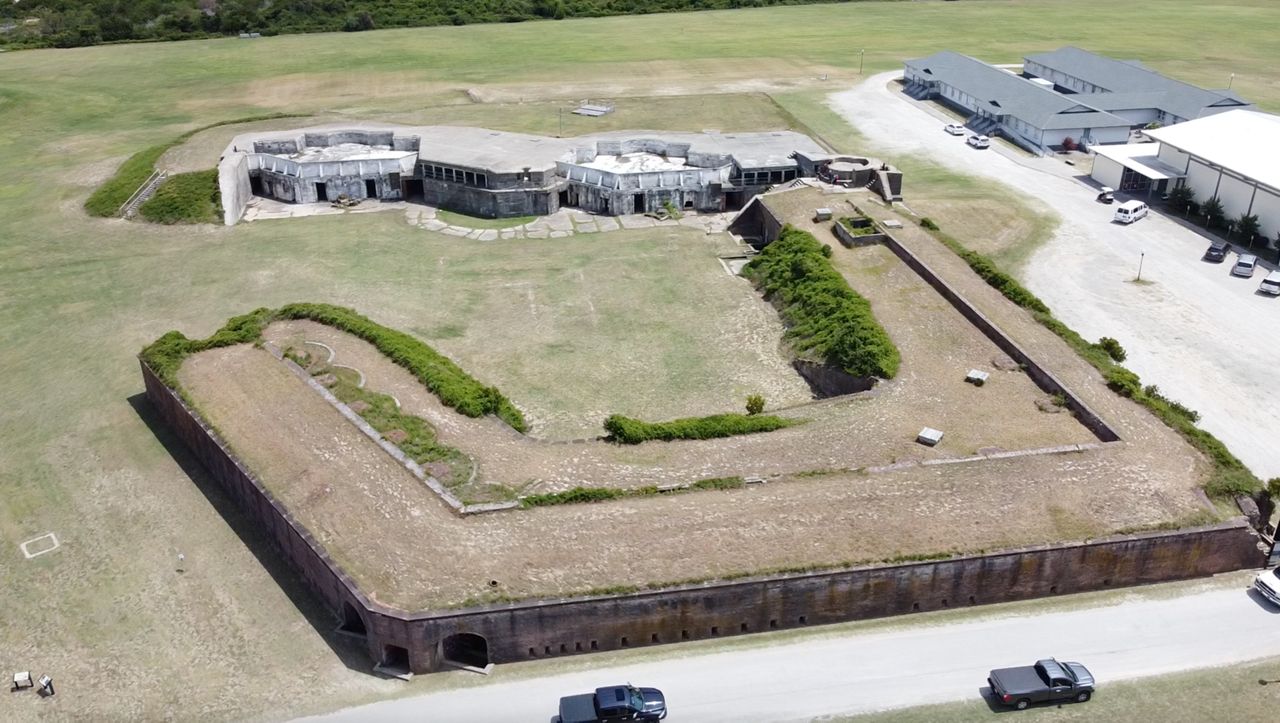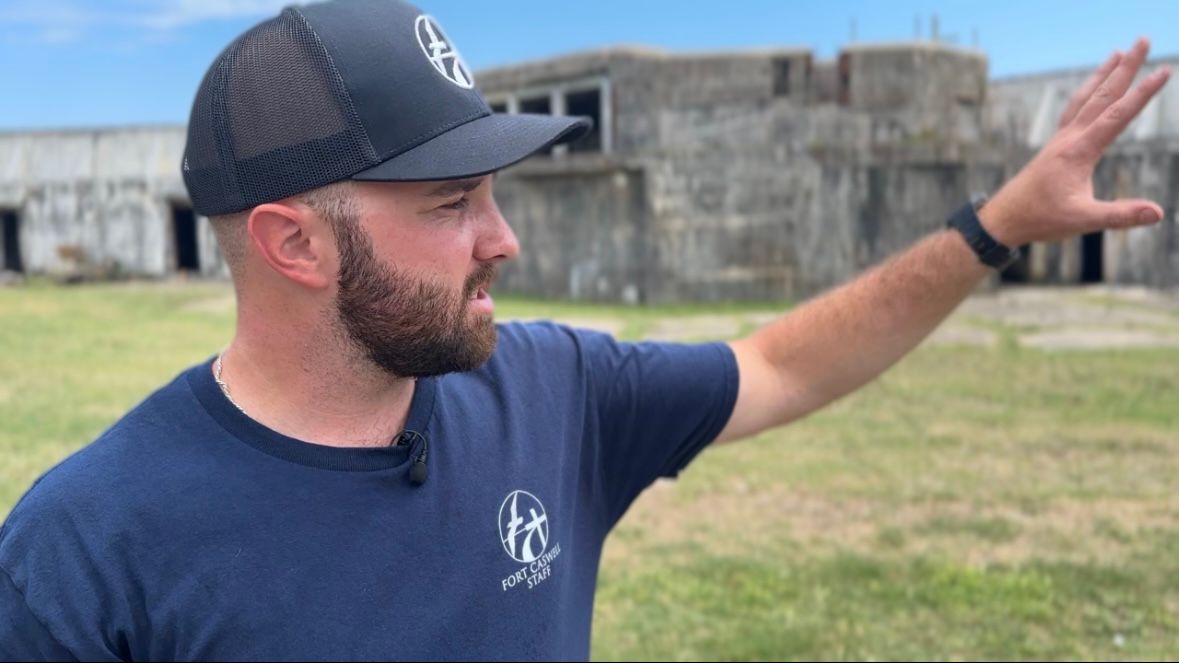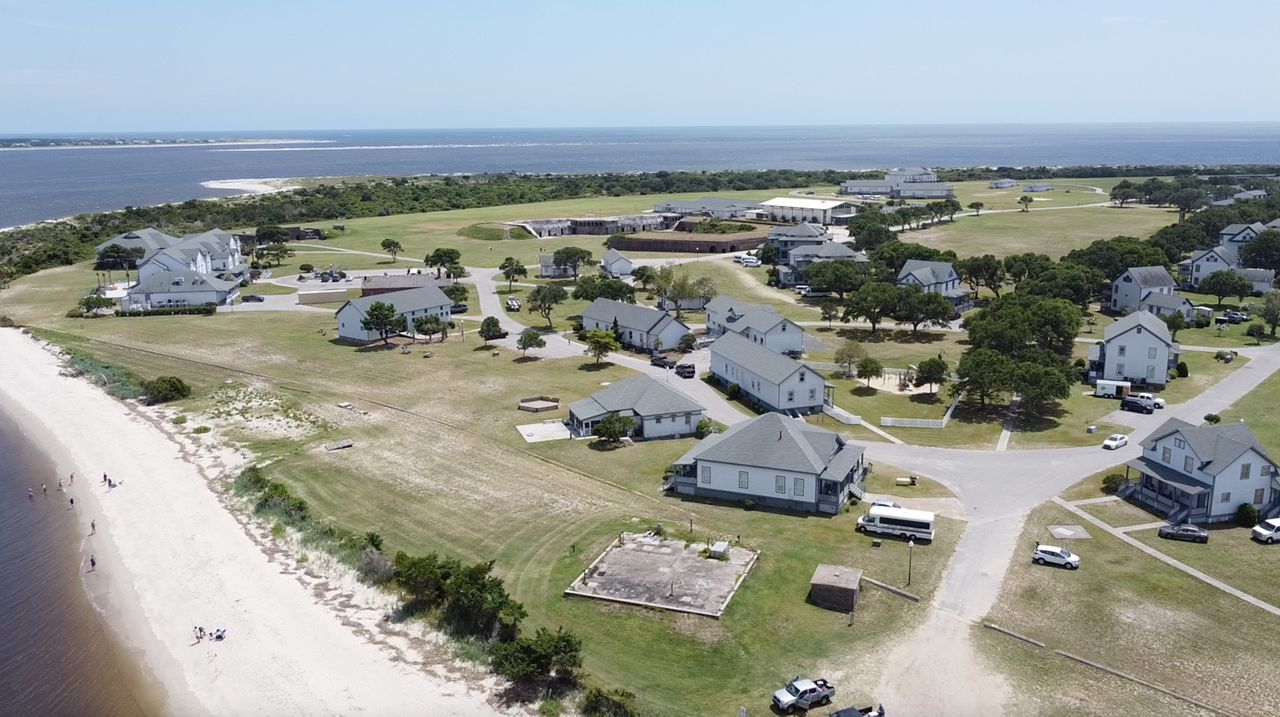FORT CASWELL, N.C. — A hidden gem sits on nearly 250 acres on the coast of North Carolina — Fort Caswell — one of North Carolina’s lesser-known former military fortresses. But this one isn’t part of a state park or historic area, it belongs to a Christian group who bought the land and its structures in the 1940s after the military listed it for sale following the end of World War II.
Every summer camp has its charms, but this one is home to an old U.S. military fort that now serves as a retreat and conference center.
Hastin McGill is officially known as the recreation coordinator for the camp, but he also doubles as a historian and treasure trove of knowledge on the old fort and its surviving battlements.

“People are like, ‘Where? Where do you work? You work at a Christian camp? You work at a conference center? It seems kind of lame,’ and I’m like, I'm not even going to try to explain this to you. Come get on the property and walk around with me, and I'll show you,” McGill said.
Fort Caswell was completed in 1826 and guarded the mouth of the Cape Fear River during the Civil War. The Confederate soldiers stationed there attempted to destroy the fort rather than surrender it to the Union.
“One thing that kind of busts a lot of people's bubble is there was never a battle here and the main reason for that, it was so fortified during the Civil War that the Union soldiers were never brave enough to attack,” McGill said.
It was dormant until the start of World War I when the military built new concrete battlements in addition to the surviving brick fort and used it to guard the coast once again.

“Between World War I and World War II, a resort community bought the place, and they turned it into a healing center,” McGill said. “Built walls on top of two of the batteries over here, turned them into swimming pools. But they made a bad investment, because the artesian well water is 98 degrees, bright green and smells of sulfur.”
With the onset of World War II the military took command of the post again and used it as a hospital for soldiers wounded overseas.
“World War II got over, they up and left and put it up for sale,” McGill said. “And if you go in those rooms to this day, each bed has a stamp on it, says U.S. They're the exact same beds that were used in World War I and II, they are still used to this day.”
Today, kids are free to scramble through the fort and explore the battlements where a cross stands to mark the fort’s transition from war to peace. McGill said their goal is to keep the military structures intact, saying there’s something special about having the history of the fort merge with the future.
“The biggest thing and what you hear through the community a lot is ‘our kids just love to be in there,’” McGill said. “We're completely booked. All summer. It's the first year that we have been since COVID.”

McGill says people never believe him when he explains the Baptists purchased the property and all the buildings on it for just $80,000.
“A lot of people ask the question, ‘How much is this place worth?’ You can't put a price on this place, because there's nothing like this anywhere else in the country,” McGill said.
Because of its unique use as a summer camp for churches and local students, it’s not open to the public during peak tourist season, but during their off season they do open it up on certain days for history tours and field trips for anyone interested in seeing the property.



